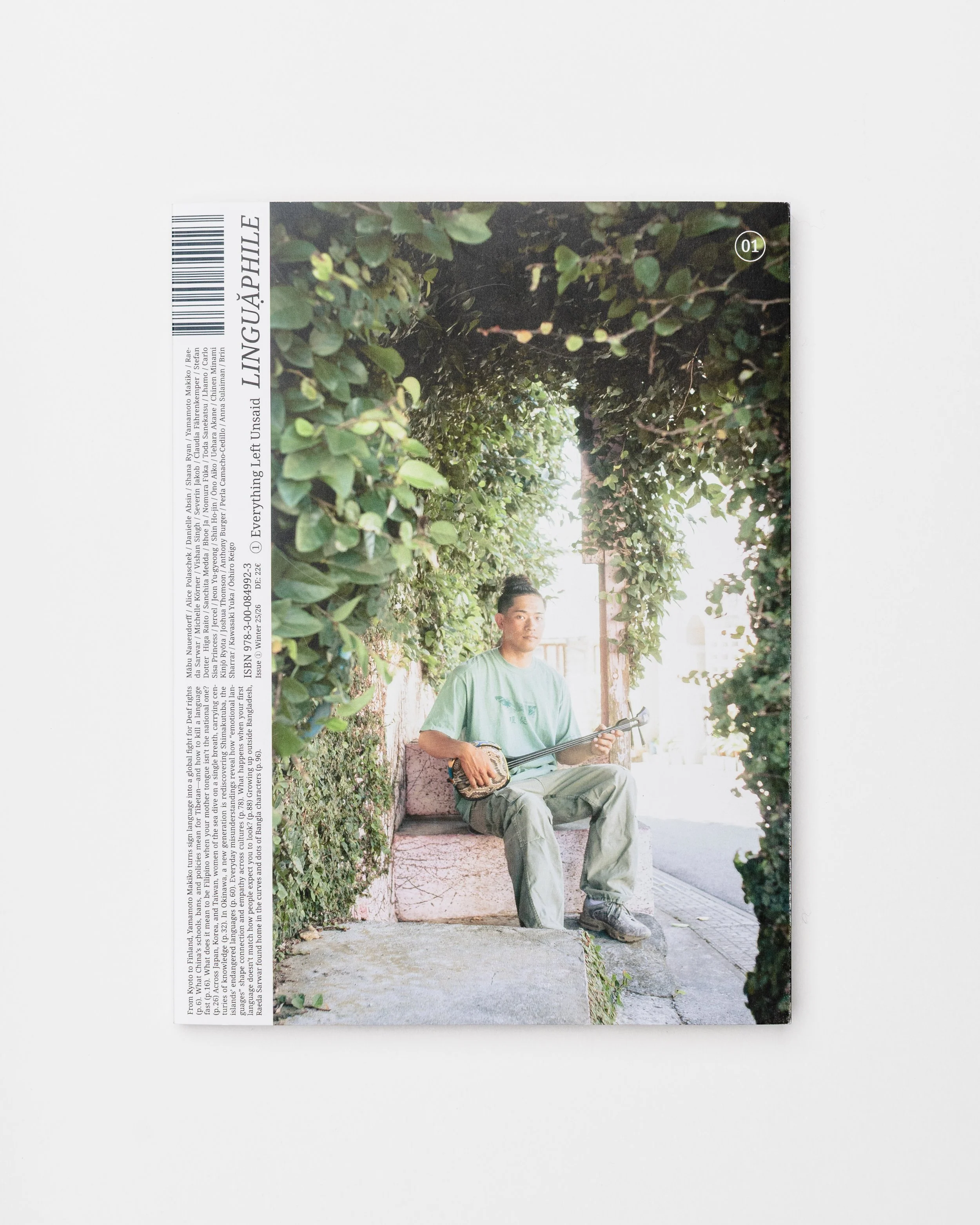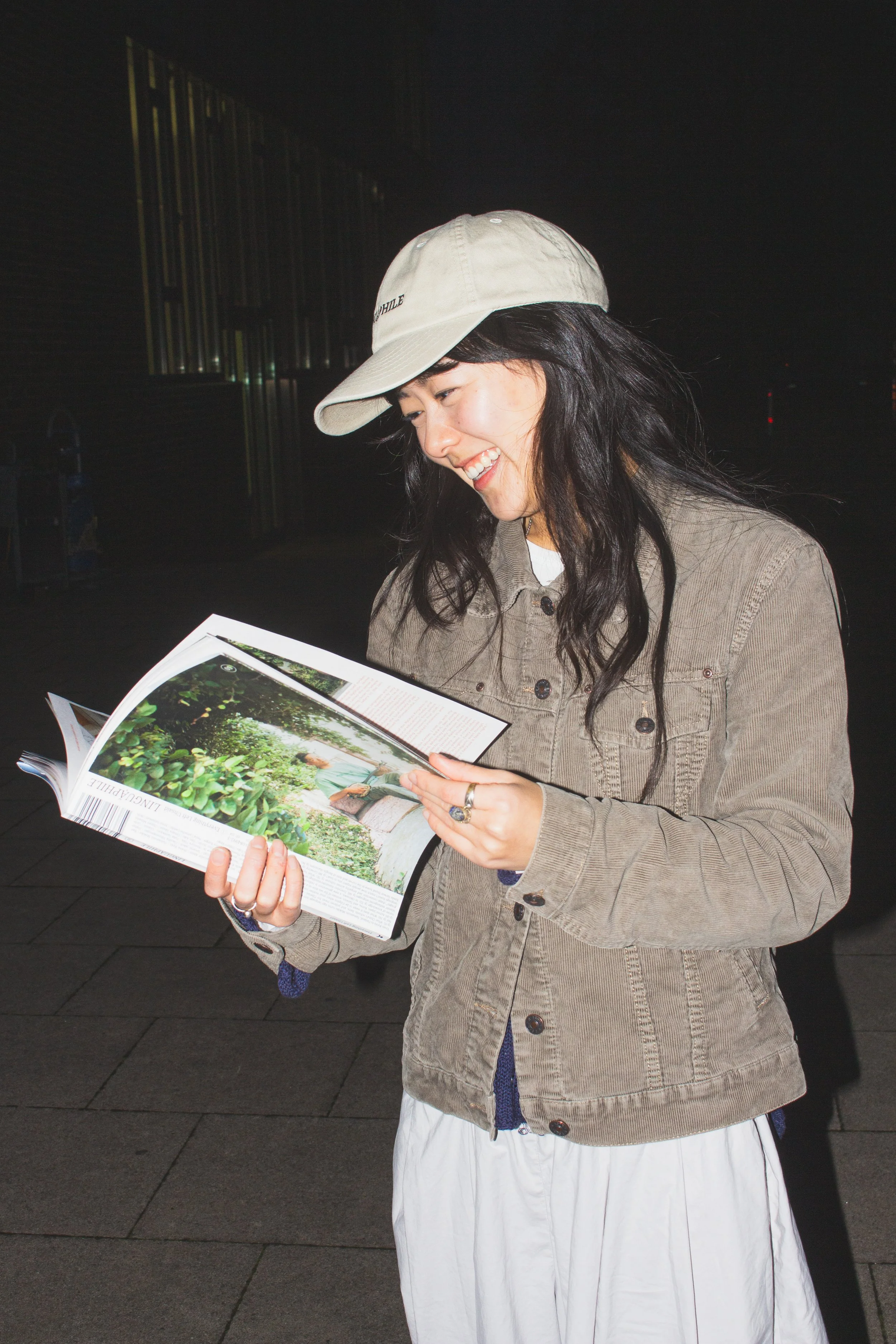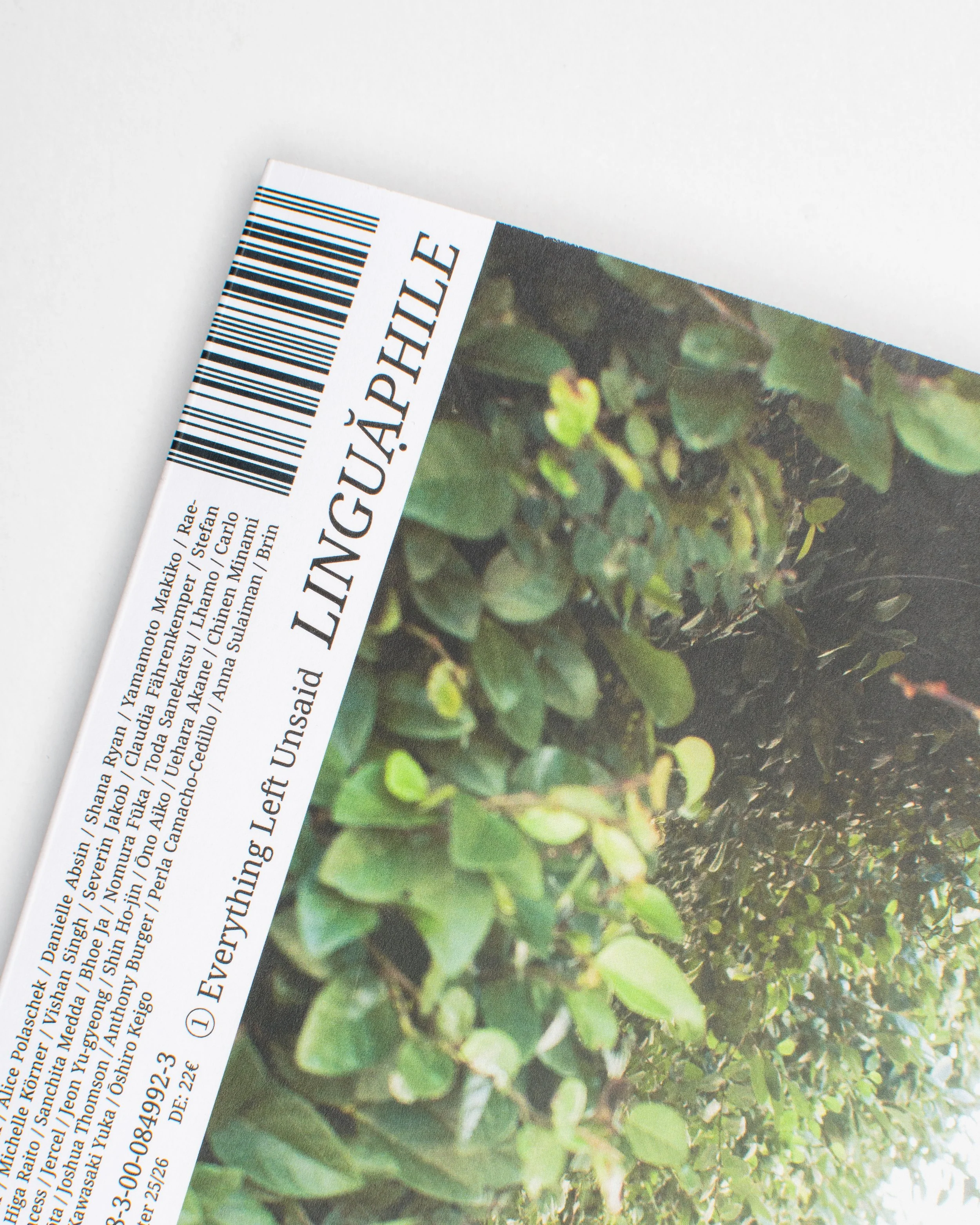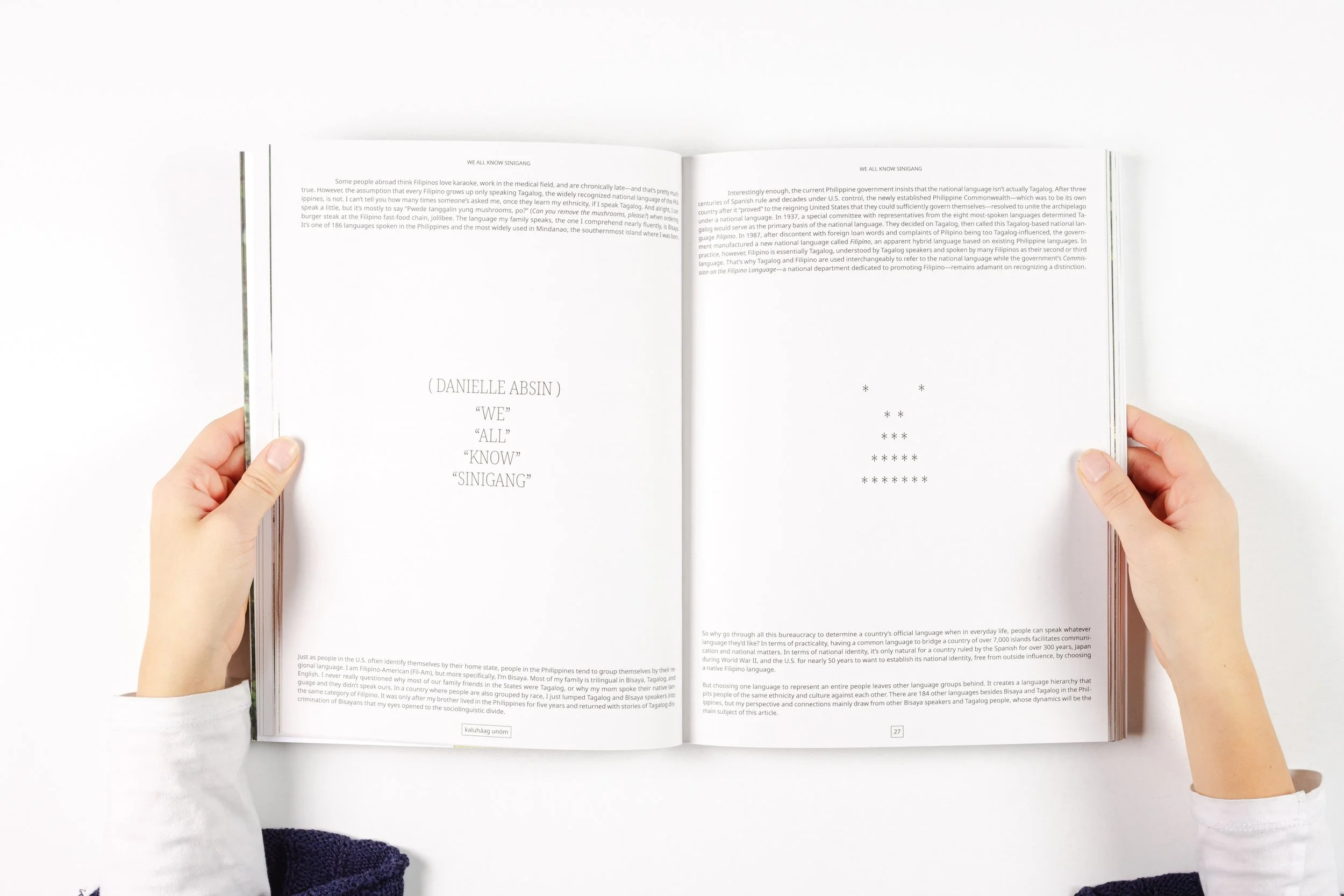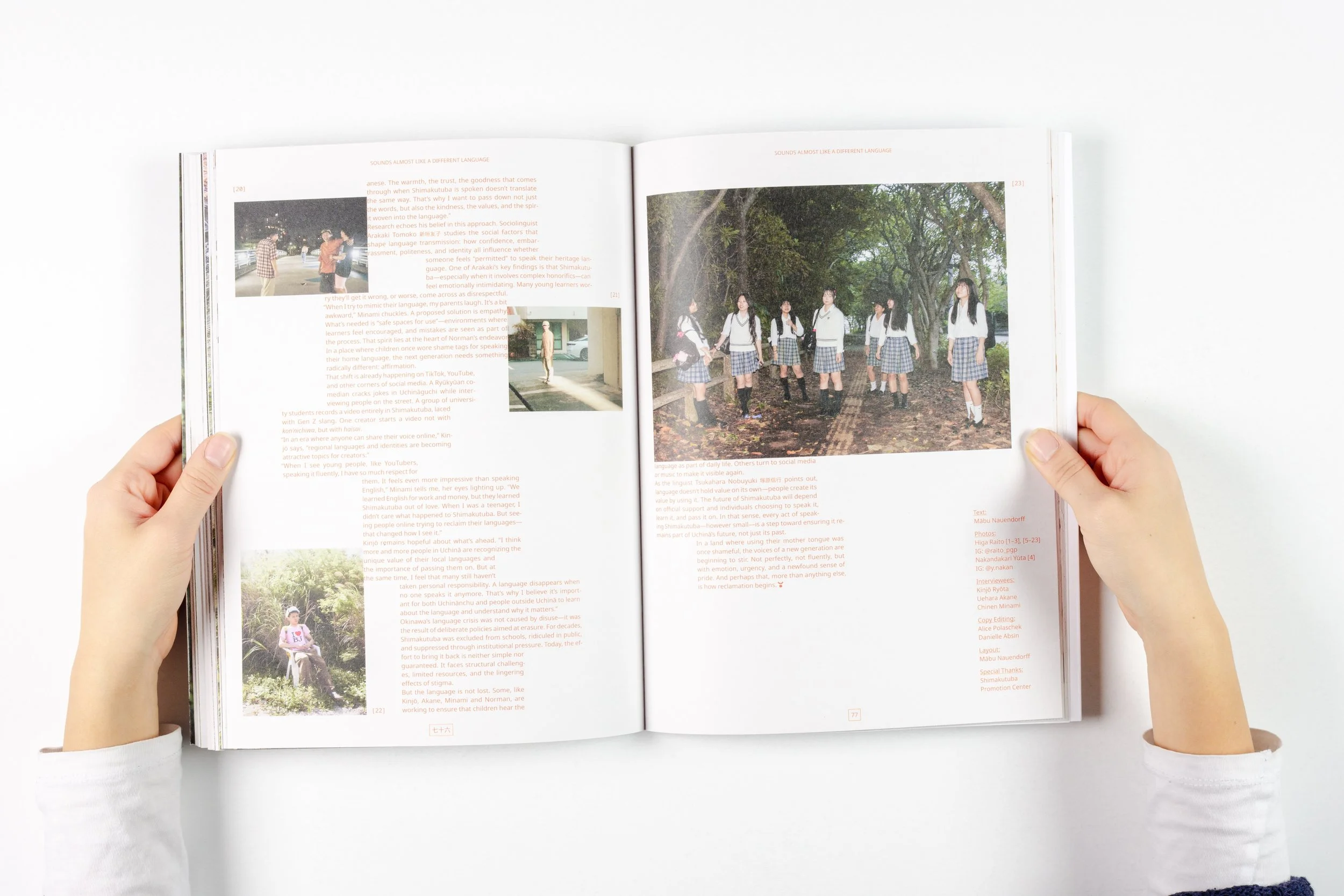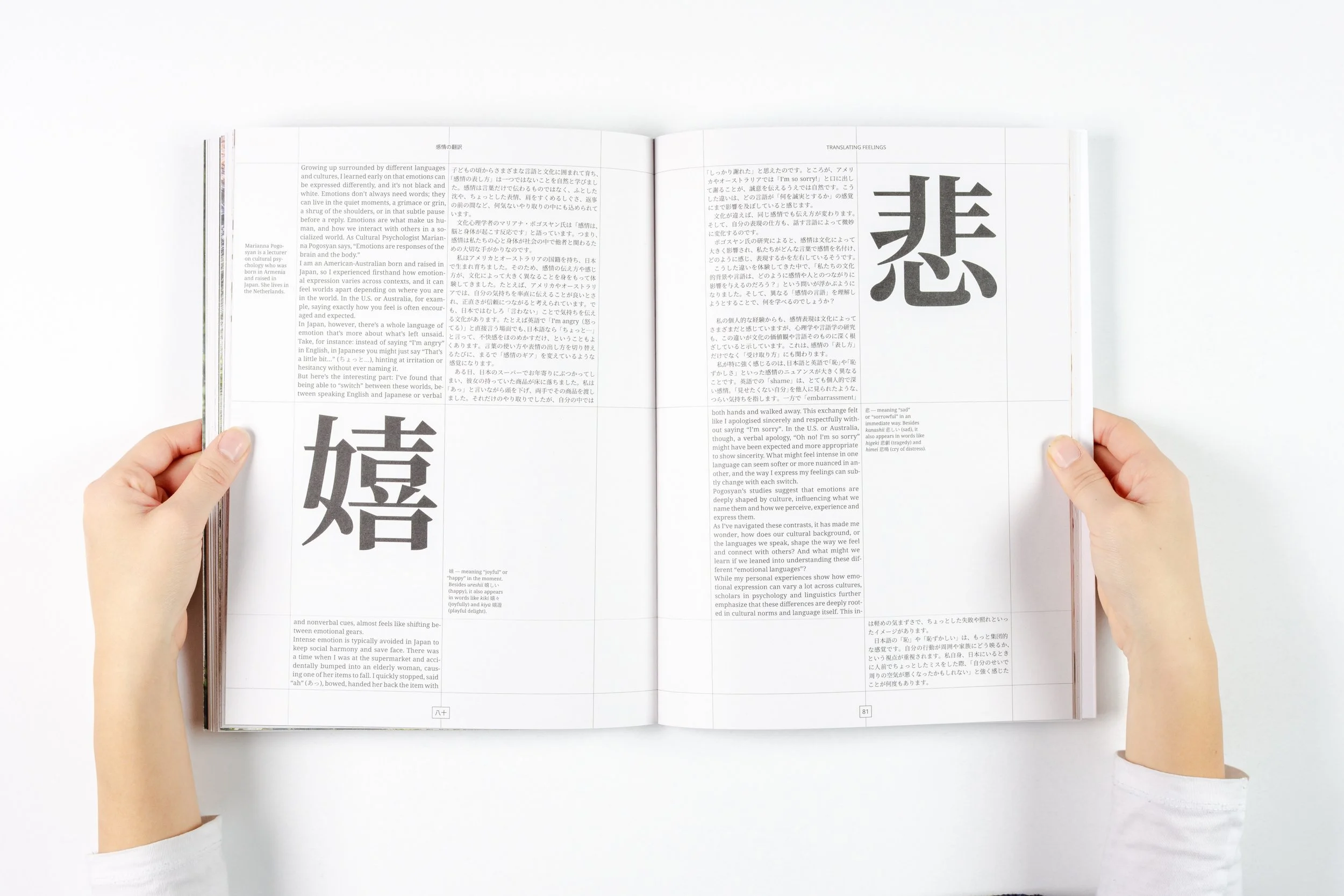Linguaphile Issue 1
is finally here!
This is the last chance to get Linguaphile at a reduced price!
Linguaphile is an independent magazine about language, and how our lives depend on it.
Linguaphile is a magazine about what language really is. Language is people.
People whose stories are unheard and whose languages are pushed to the margins.
People whose identities transform, fracture, and thrive across borders.
Currently Backed:
101.5%
Linguaphile has been successfully backed!
Language is something deeply personal. It is the sound of a grandmother’s bedtime story or a joke that only makes sense in one dialect. It is the way the feeling a word evokes can’t be completely translated to any other language.
Linguaphile exists to emphasize the human side of language. We want to know about the people that are often overlooked: people who use minoritized languages or whose language background “makes” them a minority where they live. They might be Indigenous languages with only a handful of users left, or migrant families who continue to use the language of their parents at home while living in a place where no one else does. And often, language is inseparable from the practices and livelihoods that sustain it: ways of life that themselves are in decline.
Issue 1, Everything Left Unsaid, is rooted in language but also in the lives that are entwined with it. The title points to what often remains unheard: the words people have to hold back, the stories overlooked, and the knowledge taken from communities when their way of speaking is under pressure.
Our debut issue is 100+ pages of essays, reportage, photography, and personal narratives spanning Tibet, Okinawa, Jeju, the Philippines, and more.
Why should we talk about language?
Every language, whether widely or lesser used, offers its speakers or signers a worldview and a relationship to their surroundings. Our goal is to give attention to those who rarely find a platform. Not just to the languages themselves, but to the people who use, or do not use them.
What to Get
Issue 1: Everything Left Unsaid
20€
Issue 1 + Cap Set
42€
Linguaphile Cap
25€
What’s in Issue 1?
Below is a preview of the eight feature articles included in the issue.
My Hands Are Building Bridges
Activist and author Makiko Yamamoto writes about the way Japanese Sign Language has influenced her life. A story of childhood, stigma, and discovering one’s mission in life.
We All Know Sinigang
Filipino-American writer Danielle Absin explores linguistic hierarchies in the Philippines, especially the tension between Tagalog and Bisaya. A story about migration, pride, and the languages that shape diaspora identity.
Sounds Almost Like a Different Language
A journey through the Indigenous languages on the Ryūkyū islands: their history and the young people reclaiming their heritage. Accompanied by photography capturing Okinawan youth culture today by Higa Raito.
Wow, Your Japanese Is So Good!
White actor and model Joshua Thomson, who was raised in Japan, examines bilingual identity, and the strange politics of speaking a language you’re “not expected” to know in this interview.
Like Snow on the Tongue
An in-depth report on the linguicide of the Tibetan language, its political suppression, and the efforts of Tibetans in exile who fight for their language.
One Breath, Two Characters, Three Realities
We spent time with Ama (Japan), Haenyeo (Korea), and Hainü (Taiwan) — three cultures of female divers whose languages, tools, bodies, and traditions are disappearing.
Translating Feelings
Third-culture-kid and linguist Shana Ryan explores how different languages express emotion, and how that shapes what people feel, show, or suppress. A poetic bridge between cultural psychology and linguistics.
Somewhere Between Fonts
Bangladeshi third-culture kid and graphic designer Raeda Sarwar unpacks the politics of Bangla typography, diaspora nostalgia, and the complicated task of designing for a script that holds her identity.
Why we need your support
Linguaphile is completely independent and ad-free with no corporate backing.
Printed at a high-quality German press, with multilingual typesetting, original photography, and hundreds of hours of research and interviews.
Your support helps us:
print the first 1,000 copies
pay fees like ISBNs, licenses, etc.
host audio versions of every article
keep the magazine ad-free and accessible
build a global network of bookstores and libraries
This magazine exists because people deserve to have their stories told.
If you back Linguaphile, you help us tell everything that’s left unsaid.
Q&A
Should I wait to buy Linguaphile in a bookstore?
No. Preordering Linguaphile is the best way to support us. Your preorder allows us to make Linguaphile.
What happens if you don’t meet the funding goal?
If we don’t meet our funding goal, we will either produce a smaller run, or we will entirely refund your money. However, we have already reached our goal!
When will orders ship?
The crowdfunding of Linguaphile will go until early/mid-January 2026, so the magazines will ship out around end of January/beginning of February.

